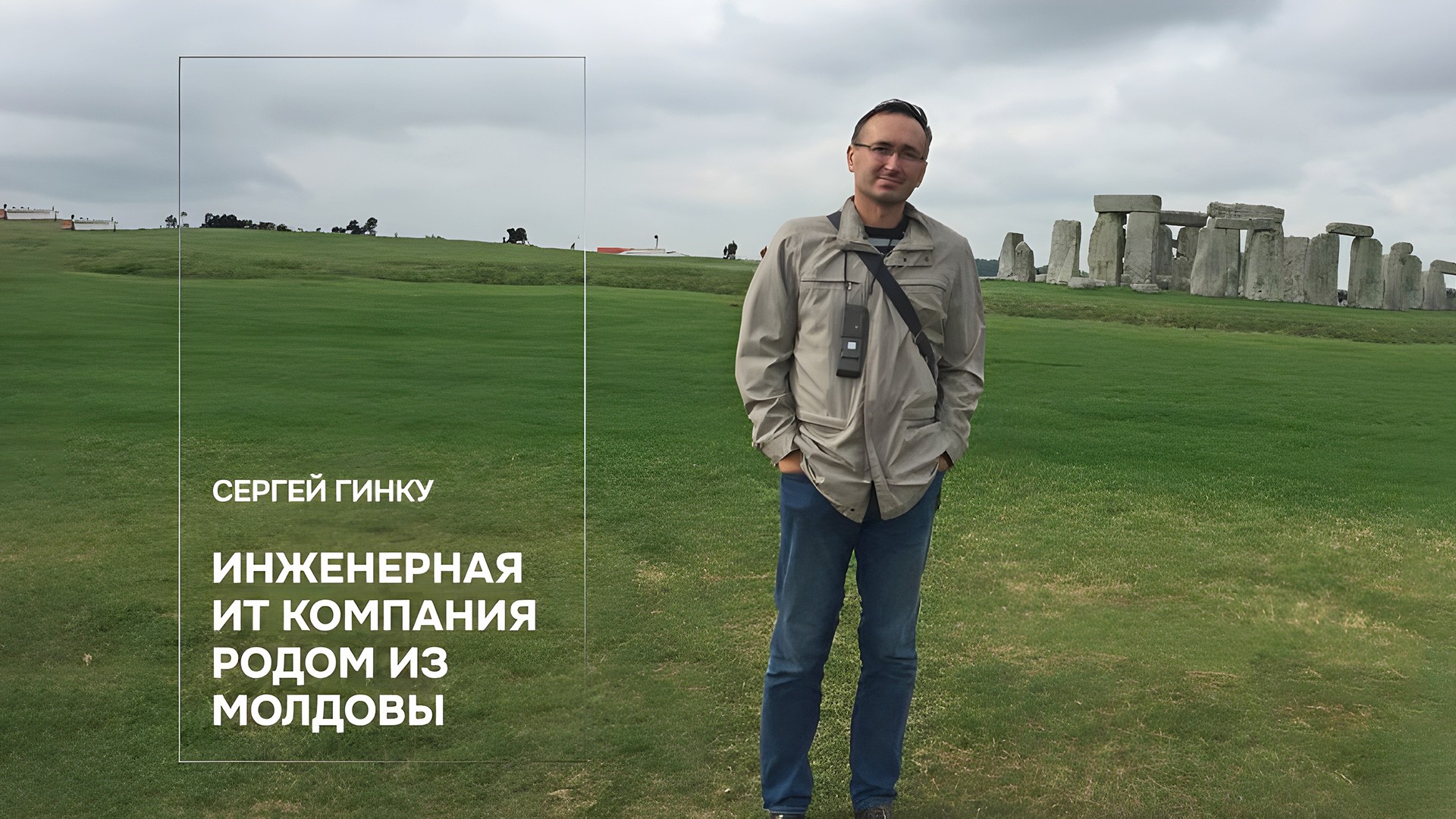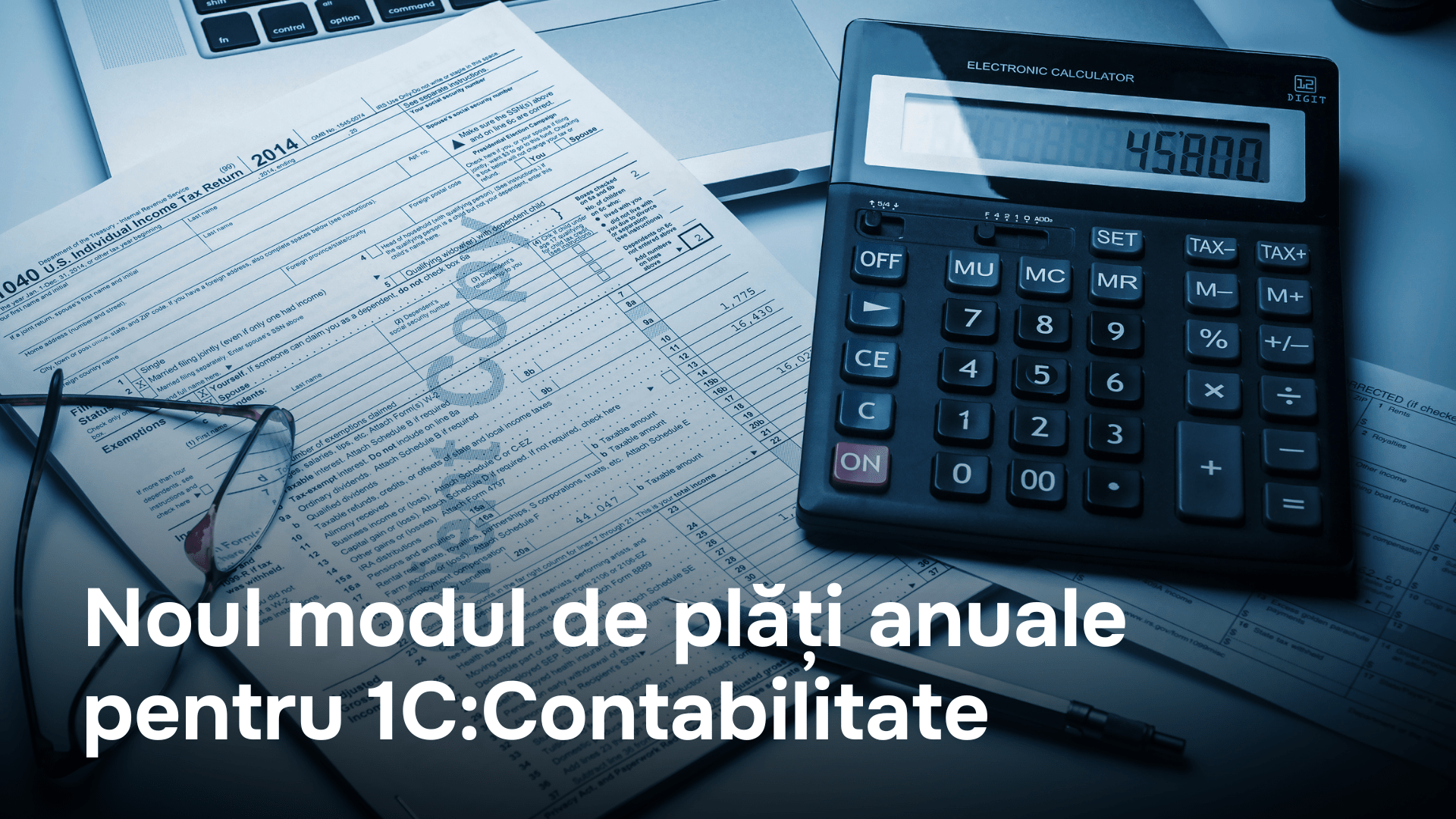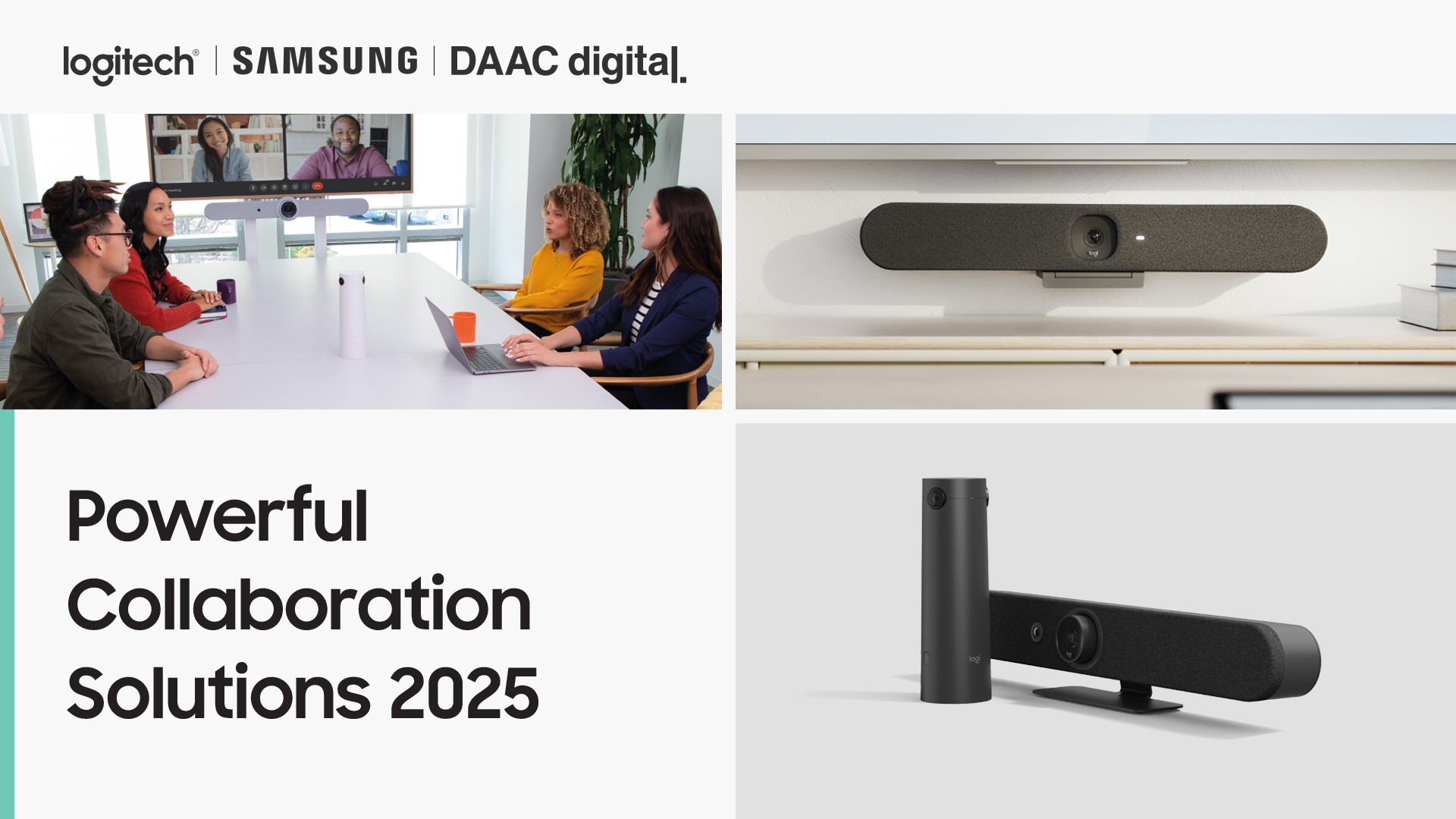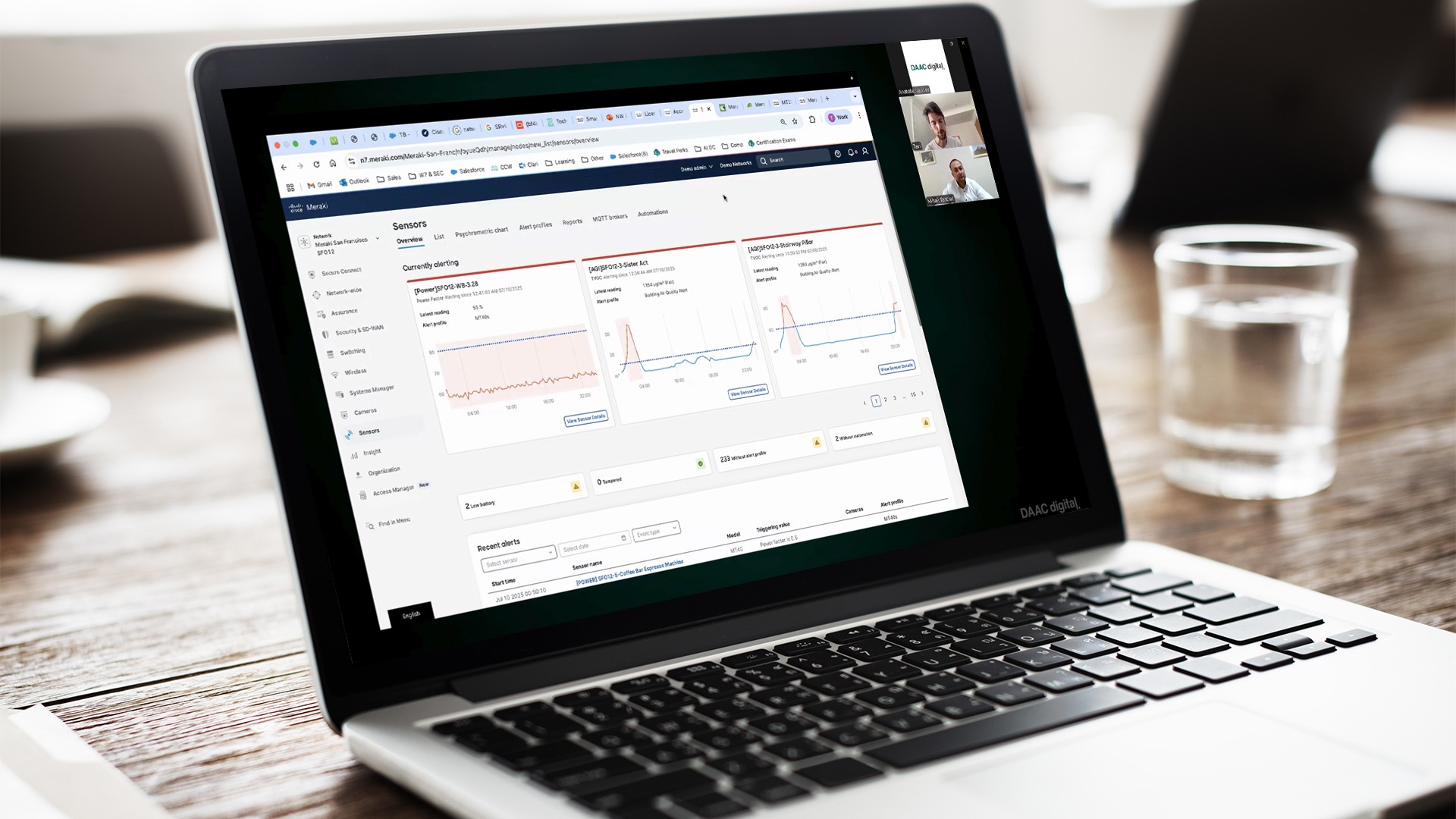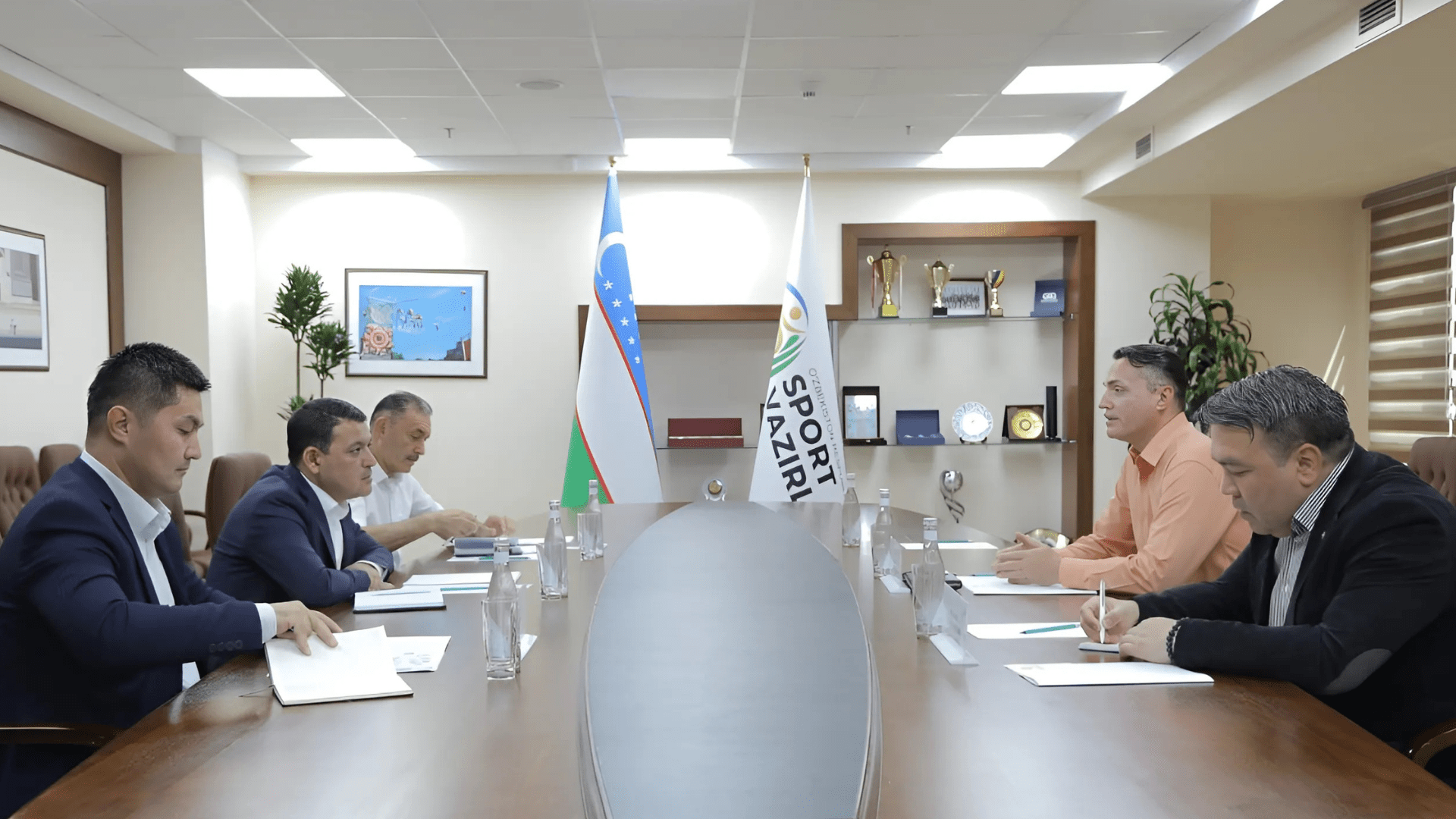Interview with Serge Ghincu, CEO of Daac System Integrator
International group of IT companies DAAC digital creates and embodies innovative solutions for digital support of information development of society, government and business. Офисы компаний работают в Кишиневе (Молдова), Ташкенте (Узбекистан) и Бухаресте (Румыния). In 2020, DAAC SYSTEM INTEGRATOR celebrated its 25th anniversary of IT achievements.
Serge, good afternoon. In 2020, DAAC SYSTEM INTEGRATOR celebrated its 25th anniversary. How many years have you been working in the company?
When the company celebrated its 25th anniversary, I had, so to speak, worked for the company for 26 years.
???
In 1994, a small team of 4 people began to deal with various supplies of computer equipment, and then network projects, for DAAC companies and companies close to them. I was still a student then and combined work with study. So, when the company was officially established as a division of DAAC in 1995, I was one of the first employees officially hired and then I was hired as an engineer.
Almost 30 years in the same company, from engineer to CEO! Impressive. Probably no one knows the history of the company better than you?
In a quarter of a century there is a lot to remember. It all started with the idea of the 90s to supply computers from a well-known manufacturer to Moldova, and then the Dell brand came to Moldova with us. But literally right away this didn’t seem enough; I wanted to continue the experiments with technology, software, etc. that I had started at the institute. I call these experiments, because there was no Internet yet, and there was so little technical documentation that we literally collected information bit by bit about what works and how it works, how it is configured. In fact, our small engineering team immediately became the basis of an IT engineering company. And literally in the first years we already had completed projects for networks, servers, complexes for databases, for large accounting systems, etc. We were the first to bring many technological solutions to Moldova and put them into operation, without missing out on opportunities to learn, independently understand everything new and improve your qualifications. Those who visited IT exhibitions in Moldova, which were still popular at that time, probably remember our company’s participation in them, when each time we showed really interesting and new products and solutions for Moldova.
Then the circle of your clients probably shifted towards banks, large companies and the state?
Exactly. And the needs of these customers pushed us to the fact that from the beginning of the 2000s we began to deal with software, primarily databases. At first we started delivering classic software from Microsoft and Oracle, and then we moved into niche ones, including security software and accounting and business management software. At the same time, in addition to the existing engineering resources, the companies began to develop the direction of software development with an emphasis on projects, that is, where the software product itself also required services for its implementation and maintenance.
As I understand it, DAAC SYSTEM INTEGRATOR, as an integrator, was created precisely because of the parallel development of two directions, hardware and software?
By 2007, our business was increasingly dominated by projects with a large share of our services. At the same time, customers did not receive ready-made specifications or technical requirements, but requests to solve business problems or to build information systems with a certain set of functions. These tasks required, first of all, finding suitable technological solutions, including the stages of design, development of technical specifications, and even feasibility studies of the selected solutions. Probably in this too we became the first Moldovan IT company whose main business was system integration. And the very term “system integrator”, which we used in the updated name of the company, perhaps we brought to Moldova then. And exactly,
Has the scale of your projects also changed?
Undoubtedly. An example of projects of that time is an international project with a six-figure sum, which was funded by the European Commission – a pet registry. We created a unified register of domestic animals, which ensured the certification of all domestic animals – cattle, pigs, sheep, horses. In the register it became possible to trace the entire life cycle of an animal, from the moment of its birth. The project required the creation of an information system, a server platform for it, a multi-service access network, as well as large-scale training courses. In fact, we have trained all veterinarians in the country to work in the created register and often just basic skills in working with a computer and an information system. And, by the way, the experts of the European Commission highly appreciated the project we created.
This scale required significant engineering and software development resources. And even then, more than ten years ago, out of more than 100 employees, at least 70% were IT specialists, and management, finance, sales departments, etc. made up a small part of the company’s staff. At that time, we also opened the first IT Services Center in Moldova, where we concentrated the already large engineering staff of our company and the entire large technological base with a spare parts warehouse, test and demonstration stands, a dedicated vehicle fleet, special training rooms, etc.
Later, to the public sector, how did banks also become customers?
Not certainly in that way. We immediately became suppliers of projects for both government agencies and banks. And also for large enterprises, such as Union Fenosa (now Premier Energy), and for telecom operators (for the entire Moldovan three largest operators). All these customers began to use large information systems. Large not only in size, but also in technological capacity, requiring a team of expert engineers for design, commissioning and subsequent technical support. Regarding banks, I can only separately mention that thanks to our engineering resources, we built data centers for most Moldovan banks, carried out server platform and network projects, and information security projects. And since the delivery of the first ATM in 2003, we now technically service more than 80% of ATMs in Moldova and continue to launch more and more new financial technologies. This can be seen in our participation in almost all fintech events taking place in Moldova.
Are you represented on the Romanian and Uzbek markets?
We have outgrown the Moldovan market in certain areas. Moreover, we have been working in the Central Asian region for a long time. Back in 2005, we carried out a large project to automate the passport system and create a population register in Kyrgyzstan. In 2017-2018, we advised on the tasks of state registers already in Uzbekistan and Tajikistan, as well as on fintech and information security for banks in these countries. Over time, we decided to do business in this region on a permanent basis and opened a subsidiary with an office in Tashkent. We consider the market of Uzbekistan and its neighboring countries to be very promising for us. In fact, it was the entry into it, as well as the opening of a subsidiary in Bucharest, that led us to the fact that in 2020 we decided to create the umbrella brand DAAC Digital. At that time, in addition to two companies in Uzbekistan and Romania, and three of our IT companies operated in Moldova. So the emergence of a common brand was logical.
It seems to me that it’s time to present in an interview, at least briefly, all the activities of DAAC Digital. Because it is so voluminous that I have the feeling that we are only talking about the company in fragments …
This is not a trivial task. Because each direction has its own team, dozens of clients, hundreds of different tasks. But I’ll try to at least list the main directions. This is a full-scale digital transformation of banks and large corporate customers, as well as public authorities. This is engineering in its many forms, including technical support and outsourcing. This is custom software development. The areas of development are varied, from government information registers to e-commerce, personnel and knowledge management. These are analytics and data management and software solutions for business management. There are also packaged software products W52, Doctrina, Register, Market platforms, etc.
Even the short list is not that short…
You’re right. I have not yet mentioned cybersecurity, the creation of data centers and corporate networks and cloud services. By the way, one of the companies in our group specializes in maintaining its own corporate cloud; you know that the DAAC holding company represents more than ten automobile brands alone. So even our internal needs require an engineering team to ensure they operate effectively. On the other hand, solving the multidisciplinary problems of the holding allows us to accumulate multidisciplinary experience from trade and car servicing to the cosmetics industry and e-commerce.
I would then offer you a series of interviews in the areas of your activity. And at the end of this interview, if you don’t mind, a few questions about you. A simple personal question: “What do you have time and energy for after the working day in Tashkent, Chisinau and Bucharest ends?”
If I’m in Chisinau and it’s not winter outside, then I try to find time for a bike. By the way, bicycles are not only in Chisinau. After cycling trips in the Netherlands, Denmark and even Portugal, a dream was born that someday Chisinau would be more comfortable for cyclists. I also have a passion for flora and fauna since my school years, so there are flowers, trees, ponds, etc. around the house, all grown and furnished with my own hands. And, of course, travel every year as much as possible. In general, after the travel bans during the pandemic years, it’s as if I can’t satisfy my accumulated hunger and try to discover new places at the first opportunity.
What is your most memorable travel experience?
Well, there are already a lot of them. But one of the unusual ones is that during training on special systems that took place in South Africa, we rented a car and made forays into national parks, to the ocean shore, etc. So this is the juxtaposition of exoticism from National Geographic documentaries with city life, when a parking attendant was driving away a giraffe with trash can lids, when a running ostrich accompanies you next to moving cars for about five kilometers, and even at the same speed as you are driving (laughs) and more A lot of everything. It was so unexpected for us. But the South Africans themselves behaved quite normally. So each country has not only its own customs, but also these habits and often the usual attitude towards something completely surprising to us.
I wish to continue to discover unusual places in other countries and technologies for Moldova… And, I hope, we will continue the series of interviews related to DAAC Digital. At least about Uzbekistan and Romania
Pavel Zingan
Source: pavelzingan.md

